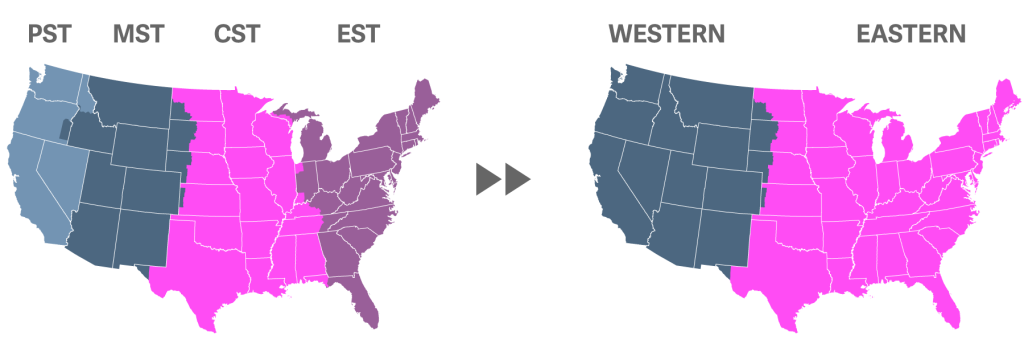Share This
Related Posts
Tags
Time for a Change?
By Erica Rascón on Mar 6, 2014 in News
When CNN listed time zone reduction on its 10 Ideas, readers like me smiled politely and continued to the next article. Big changes don’t happen often in our society and they certainly don’t happen quickly. Changing American time zones seems incredibly unlikely unless we’re convinced that it would make our lives exponentially better and, of course, not lead to national disaster.
to the next article. Big changes don’t happen often in our society and they certainly don’t happen quickly. Changing American time zones seems incredibly unlikely unless we’re convinced that it would make our lives exponentially better and, of course, not lead to national disaster.
An America with two time zones could definitely make our lives easier. It won’t cause national chaos, either. As a matter of fact, the US did not instate our current zone system until 1883. We weren’t introduced to daylight savings time until 1918. Everyone survived.
Allison Schrager’s proposal would eliminate daylight savings time entirely. It would also unite the US by two time zones with Eastern Time one hour ahead of Western Time. Adverse effects would be minimal. It may be brighter or darker outside at dinnertime but we already experience that at the solstices.
As for positive effects, eliminating time zones could help businesses save time and money in several ways:
- Businesses would not need several call center locations or shifts to staff their offices. With only one hour differential between coasts, one team on either coast could service the entire nation.
- Streamlined marketing simplifies social media updates, push notifications, and other outreach efforts.
- Webinars and conference calls become easier to schedule, particularly when making calls to states that straddle more than one time zone such as Texas, Tennessee and West Virginia.
- Employee productivity stands to increase with the implementation of a two zone system. Fewer working hours are lost when traveling between coasts. Employees will also be able to transition more smoothly without jetlag, boosting productivity and creativity. No more nodding and smiling while sleeping with your eyes open.
- Businesses could lose less money to airlines, likely saving millions when employees must change flights due to scheduling errors. According to the US Department of Transportation, airlines gained more than $2.5 billion in ticket-change fees in 2012 alone.
- Businesses lose countless hours of productivity during major sporting events. Sports fans alter their work schedules—generally leaving early and reducing productivity—in preparation for games. When competing teams are from different time zones, games are scheduled to appease the most viewers, requiring compromise (thus altered work schedules) on both extremes. Without a three-hour time difference, major sporting events could be scheduled at times that do not interfere with typical business hours.
There is also the matter of national equality, which has farther reaching effects than commerce. The eastern-most time zones hold large populations and greater political influence; most swing states are located along the East Coast. As a result, federal elections are generally “called” hours before polls on the West Coast have closed. West Coast poll closings are anticlimactic at best. At worst, decisions are influenced by results from the opposite coast. The one hour differential could notably level the playing field.
Do you think a two time zone system could work for America? What drawbacks could come from the change?
